

| NEWSLETTER |
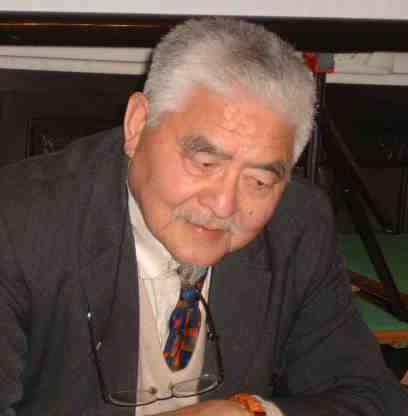 |
The last photo of Tao, 25th March 2009, taken during his ICCS talk. |
Founder Members Dell Lundy and Tao Kiang |
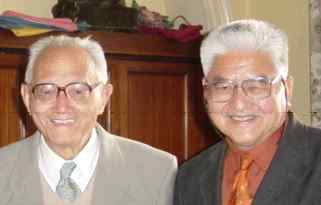 |
Jin Di and Tao Kiang |
 Two decades ago the Cold War ended. The world had barely recovered from its shadows, on came a succession
of local hot wars each with its own quota of misery of the more tangible kind. Why ? Greed, I say, is again
the root cause; greed, this time, not on the part of individual persons or financial corporations, but
on the part of whole countries. And not for money, but essentially for oil.
Two decades ago the Cold War ended. The world had barely recovered from its shadows, on came a succession
of local hot wars each with its own quota of misery of the more tangible kind. Why ? Greed, I say, is again
the root cause; greed, this time, not on the part of individual persons or financial corporations, but
on the part of whole countries. And not for money, but essentially for oil. 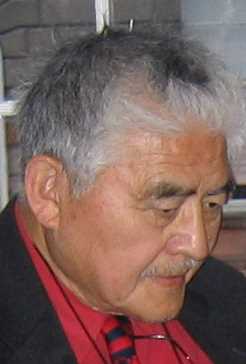 Greed is when we want more than we need. Greed is pure foolishness when we want more than we can enjoy.
We all laugh at the old man who says, "I still chase girls, but I've forgotten why". Substitute "money"
and "oil" for "girls", we should all be laughing at ourselves.
Greed is when we want more than we need. Greed is pure foolishness when we want more than we can enjoy.
We all laugh at the old man who says, "I still chase girls, but I've forgotten why". Substitute "money"
and "oil" for "girls", we should all be laughing at ourselves.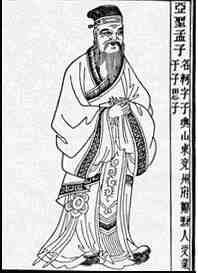 The passage runs, "if each household with an acre of land grows a mulberry tree, and tends
domestic animals with care, then the over-50s can wear silk, and the over-70s can eat meat",
and the Sung commentary is that there was just not enough silk or meat for everybody,
so the older people are given preference. Thus, the limited form of the Confucian commandment
can be traced back to the circumstance of limited resources. This led me to think that greed may have a
similar origin.
The passage runs, "if each household with an acre of land grows a mulberry tree, and tends
domestic animals with care, then the over-50s can wear silk, and the over-70s can eat meat",
and the Sung commentary is that there was just not enough silk or meat for everybody,
so the older people are given preference. Thus, the limited form of the Confucian commandment
can be traced back to the circumstance of limited resources. This led me to think that greed may have a
similar origin. Greed was identified by the Buddha as one of the three root causes of the unsatisfactory nature of
human existence, which the sage told us to purge from our hearts. By identifying the materialistic origin,
I have taken moral and spiritual considerations out of the equation. On the other hand, it will be naive
to expect that once the world becomes one of material plenty, as for example, through the realization
of E-equals-m-c-squared, that greed will disappear. No, greed has gone too deep into our psyche for
this to happen. To rid ourselves of this deep-seated source of evil, the key step is to recognize
that while greed had a natural origin, its deep-seatedness is due to centuries of brain-washing
through man-made customs and institutions. We must, as the Chinese Taoist philosopher Chuang Tzu
advised, distinguish what is of nature and what is of man.
Greed was identified by the Buddha as one of the three root causes of the unsatisfactory nature of
human existence, which the sage told us to purge from our hearts. By identifying the materialistic origin,
I have taken moral and spiritual considerations out of the equation. On the other hand, it will be naive
to expect that once the world becomes one of material plenty, as for example, through the realization
of E-equals-m-c-squared, that greed will disappear. No, greed has gone too deep into our psyche for
this to happen. To rid ourselves of this deep-seated source of evil, the key step is to recognize
that while greed had a natural origin, its deep-seatedness is due to centuries of brain-washing
through man-made customs and institutions. We must, as the Chinese Taoist philosopher Chuang Tzu
advised, distinguish what is of nature and what is of man.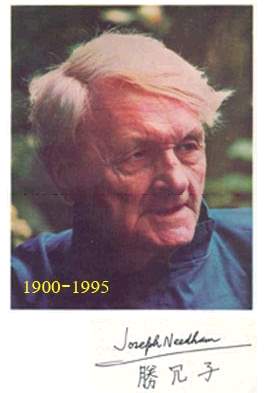 Justin Keating
has had distinguished careers as
an academic. a broadcaster, a TD
a Minister for Industry and
Commerce, a Senator and an MEP.
He is President of the Irish
Humanist Association, a Master
Farmer and an accomplished chef
who nearly won the title of Best
Amateur Chef in the UK!
Justin Keating
has had distinguished careers as
an academic. a broadcaster, a TD
a Minister for Industry and
Commerce, a Senator and an MEP.
He is President of the Irish
Humanist Association, a Master
Farmer and an accomplished chef
who nearly won the title of Best
Amateur Chef in the UK!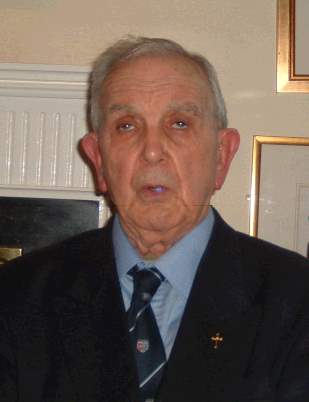 Valignano also appointed Michele
Ruggieri to head up the Chinese
mission. Ruggieri established a
policy of inculturation whereby all
missionaries would become wellversed
in Chinese language,
philosophy and culture before
being sent into the field – a policy
which was adhered to by the Jesuit
missioners for many years.
Valignano also appointed Michele
Ruggieri to head up the Chinese
mission. Ruggieri established a
policy of inculturation whereby all
missionaries would become wellversed
in Chinese language,
philosophy and culture before
being sent into the field – a policy
which was adhered to by the Jesuit
missioners for many years.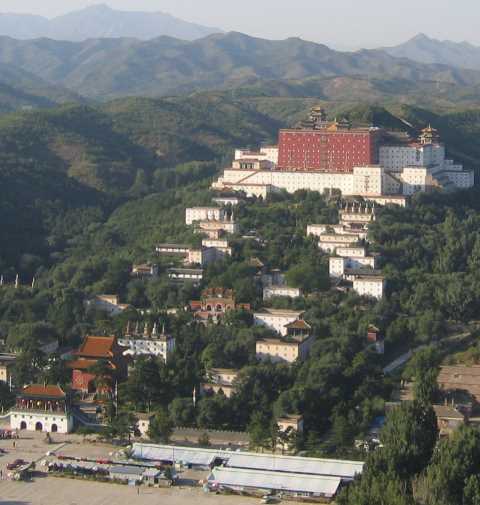
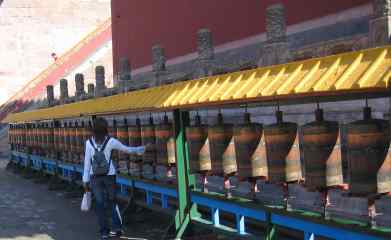

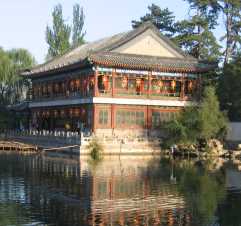 There are many pavilions within the Mountain Retreat. The most famous is the Yanyu Lou
("Mist and Rain Pavilion"), built on a lake island.
(This was the backdrop for China's National
TV gala performance to celebrate the 2007 Mid-Autumn Festival: our travellers saw the preparations.)
The pavilions were built for contemplation of exquisite vistas, perhaps including the extraordinary
Qingchui peak, an impossible-looking rock formation, likened to a sort of hammer with its handle sticking up.
The surrounding park includes 7 other lakes (stocked with fish!), reflecting the high peaks and
tumbling gardens brimming over with many species of highly scented wild flowers.
Certainly an outstanding World Heritage Site, the visual treat we had was definitely
an intoxicating glimpse of a place it would surely take weeks to explore fully.
We are most truly grateful to our Committee members for this enticing talk.
There are many pavilions within the Mountain Retreat. The most famous is the Yanyu Lou
("Mist and Rain Pavilion"), built on a lake island.
(This was the backdrop for China's National
TV gala performance to celebrate the 2007 Mid-Autumn Festival: our travellers saw the preparations.)
The pavilions were built for contemplation of exquisite vistas, perhaps including the extraordinary
Qingchui peak, an impossible-looking rock formation, likened to a sort of hammer with its handle sticking up.
The surrounding park includes 7 other lakes (stocked with fish!), reflecting the high peaks and
tumbling gardens brimming over with many species of highly scented wild flowers.
Certainly an outstanding World Heritage Site, the visual treat we had was definitely
an intoxicating glimpse of a place it would surely take weeks to explore fully.
We are most truly grateful to our Committee members for this enticing talk.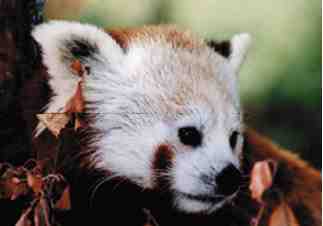
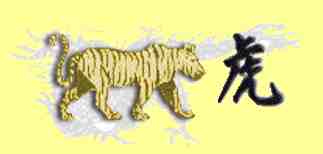 The Metal element gives the
Tiger its sharpness in action
The Metal element gives the
Tiger its sharpness in action
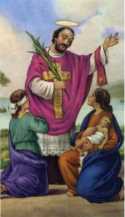 and speed of thought. Tigers
born in the Metal year like to
stand out in a crowd. With an
inspiring assertiveness and competitive demeanor, they
determine their goals and then do anything necessary to
achieve them. This good-looking character sometimes
suffers from mood swings and temper tantrums. The
Tiger can be known to jump to conclusions or to act too
quickly without weighing the options or understanding
the consequences. This is a flaw Tigers must learn to
curb.
and speed of thought. Tigers
born in the Metal year like to
stand out in a crowd. With an
inspiring assertiveness and competitive demeanor, they
determine their goals and then do anything necessary to
achieve them. This good-looking character sometimes
suffers from mood swings and temper tantrums. The
Tiger can be known to jump to conclusions or to act too
quickly without weighing the options or understanding
the consequences. This is a flaw Tigers must learn to
curb. Did you know that Cork City is
Twinned with Shanghai?
Twinning became fashionable after
the second World War as a way of
reuniting bitterly divided communities
in Europe, with the most famous
partnership involving a link between
the two most-bombed
cities: Coventry in the
English Midlands and
the German city of
Dresden.
Did you know that Cork City is
Twinned with Shanghai?
Twinning became fashionable after
the second World War as a way of
reuniting bitterly divided communities
in Europe, with the most famous
partnership involving a link between
the two most-bombed
cities: Coventry in the
English Midlands and
the German city of
Dresden.| Languagewise, 40 Fitzwilliam Street Upper, (Corner of Baggot St Lower), Dublin 2. T: 01 668 5808 F: 01 658 7805 E:info@languagewise.ie |
The Sandford Language Institute Milltown Park, Sandford Road, Dublin 6 26 Merrion Square North, Dublin 2 Tel: 01 - 260 1296 Fax: 01 - 686 5570 info@sandfordlanguages.ie |
UCD Confucius Institute UCD Confucius Institute for Ireland University College Dublin Belfield, Dublin 4 Ireland Tel: +353 1 716 4747 Fax: +353 1 716 4844 E-Mail: china@ucd.ie |
| Colaiste Dhulaigh (CDVEC) Barryscourt Road, Coolock, Dublin 17. T: 01 8481400 F: 01 8481544 E: info@cdcfe.cdvec.ie Chinese Cookery |
The Sanctuary Stanhope Street, Off Grangegorman Road, Dublin 7. T: 01 6705419 E: lindafitzsimons@sanctuary.ie Qi Gong |
Newpark Adult Education Centre Newtownpark Ave., Blackrock, Co. Dublin. T: 01 2884376 F: 01 2782478 E: office@newparknightschool.ie Chinese Language & Civilisation |
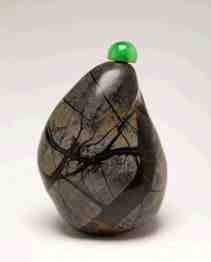 the ‘Arts of the
Book’ gallery was reorganized to feature
an exhibition of Chinese snuff bottles
from the Library’s collection. Dating
mainly from the Manchu Qing dynasty
(1644-1911), snuff bottles were among
Chester Beatty’s earliest acquisitions.
The exhibition included some 600 bottles
of jade, porcelain, crystal, lacquer, glass
and many other materials, and 275 of
these are also published in a new
catalogue. The exhibition was mounted
and the catalogue released to coincide
with the annual convention of the International
Chinese Snuff Bottle Society.
the ‘Arts of the
Book’ gallery was reorganized to feature
an exhibition of Chinese snuff bottles
from the Library’s collection. Dating
mainly from the Manchu Qing dynasty
(1644-1911), snuff bottles were among
Chester Beatty’s earliest acquisitions.
The exhibition included some 600 bottles
of jade, porcelain, crystal, lacquer, glass
and many other materials, and 275 of
these are also published in a new
catalogue. The exhibition was mounted
and the catalogue released to coincide
with the annual convention of the International
Chinese Snuff Bottle Society.